In 1984, WWF-Hong Kong began pioneering environmental education in the city, turning nature into an immersive classroom. Today, our flagship “One Planet Schools” (OPS) programme, held at our education centres across Hong Kong, creates hands-on experiences that nurture future conservation leaders, delivering curriculum-aligned programmes that bring environmental learning to life.
Our ongoing collaboration with Li Po Chun United World College of Hong Kong (UWC) is a demonstration of this commitment in action. Their annual sustainability project week, called “Conservation in Action and Technology”, combines practical conservation activities with education about local ecosystems, giving students an active role in environmental protection while gaining hands-on experience. We spoke to a UWC representative to hear about this year’s programme.
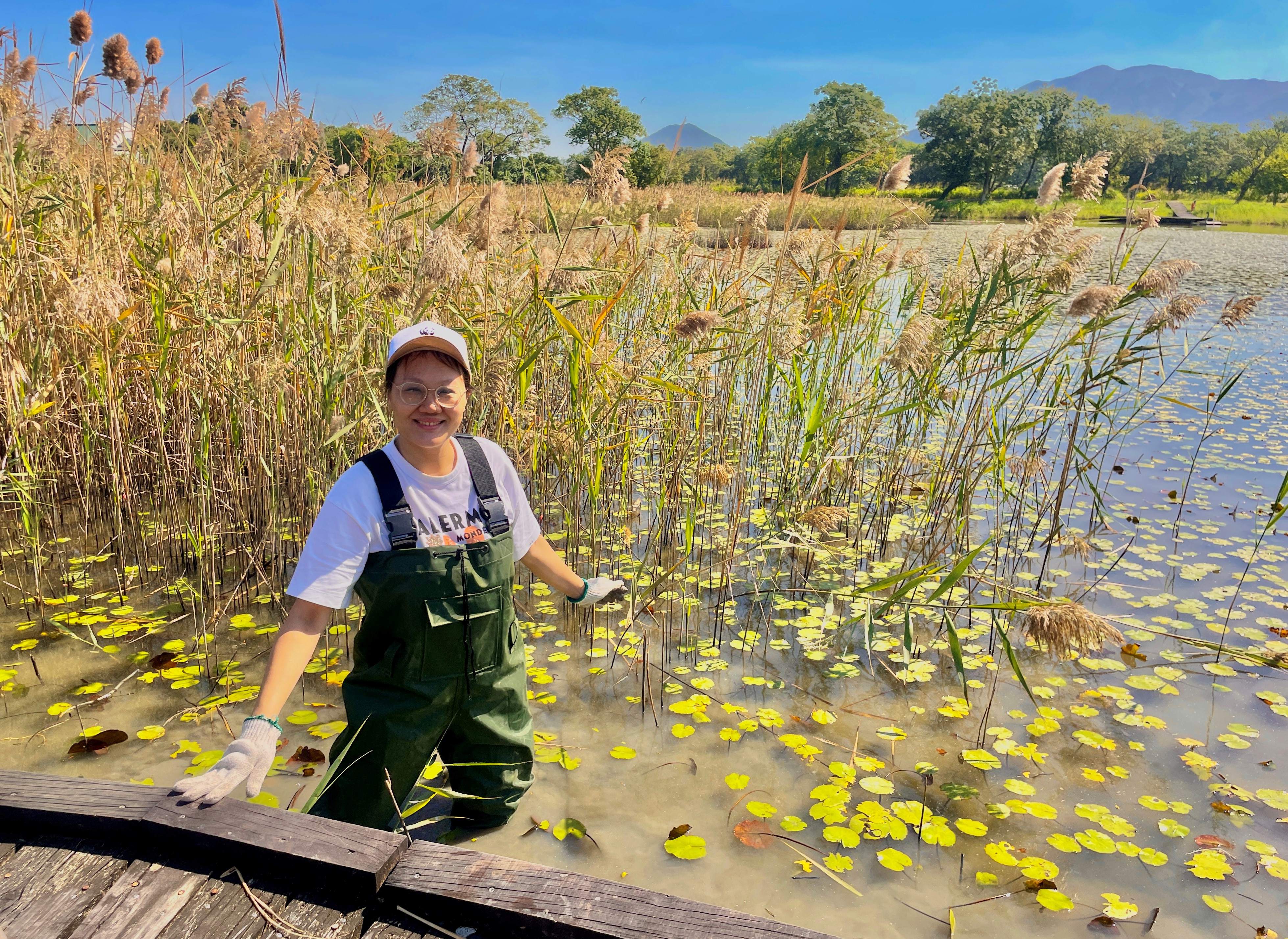
Our participation stems from UWC’s core mission – “peace and sustainability”. Our “Conservation in Action” programme focuses on environmental justice and sustainable resource use, and our students gained hands-on experience at critical sites like Hoi Ha Wan Marine Park and Mai Po Nature Reserve. This collaboration enhances classroom learning and empowers students to become active participants in conservation, preparing them for future environmental stewardship leadership roles.
The main objectives of the project were to raise students’ environmental awareness, equip them with practical conservation skills and increase their understanding of threats to local coastal and wetland ecosystems. The key learning outcomes were raising awareness through hands-on fieldwork at Mai Po and Hoi Ha Wan; developing scientific inquiry skills through ecological surveys and data collection – including water quality tests, coral observation and monitoring endangered species; and fostering teamwork through activities like a coastal clean-up at Island House and invasive Apple snail removal at Mai Po. The programme succeeded at transforming environmental concepts into realworld action, empowering students to become proactive environmental citizens while developing their leadership skills and their commitment to sustainability.
From what I saw, the programme’s immersive experiences significantly deepened students’ environmental awareness. Hands-on activities like coastal clean-ups, ecological surveys and habitat restoration helped them develop practical scientific skills. Direct exposure to environmental challenges made these issues more tangible and urgent for them, especially when they saw the contrast between protected areas and polluted sites.
We also observed remarkable changes in students’ attitudes and behaviours. Many moved from passive awareness to active engagement, feeling inspired by their ability to make visible differences. They developed deeper emotional connections with nature and now have greater empathy towards wildlife. Most importantly, the students became more mindful of their environmental impact, with many actively staying involved in conservation activities.
Environmental education is already deeply integrated into our curriculum through the IB Environmental Systems and Societies course. Looking ahead, we’re excited to expand our focus on sustainable development and urban planning across disciplines. We’re particularly interested in exploring how Hong Kong balances urban growth with habitat conservation, using real-world examples like wetland conservation. Our students will examine case studies involving proposed wetland conservation parks, including Hoo Hok Wai, Sam Po Shue and Nam Sang Wai – these will offer excellent opportunities for field studies and policy analyses.
As for future collaborations with WWF, we’re excited about developing programmes on sustainable urban planning for conservation and projects that explore the San Tin Technopole development. Through workshops, field visits and hands-on projects, students will investigate urban development projects while proposing solutions that balance human needs and environmental protection. Our ultimate goal is to nurture informed, critical thinkers who can effectively advocate for sustainable development in their communities.
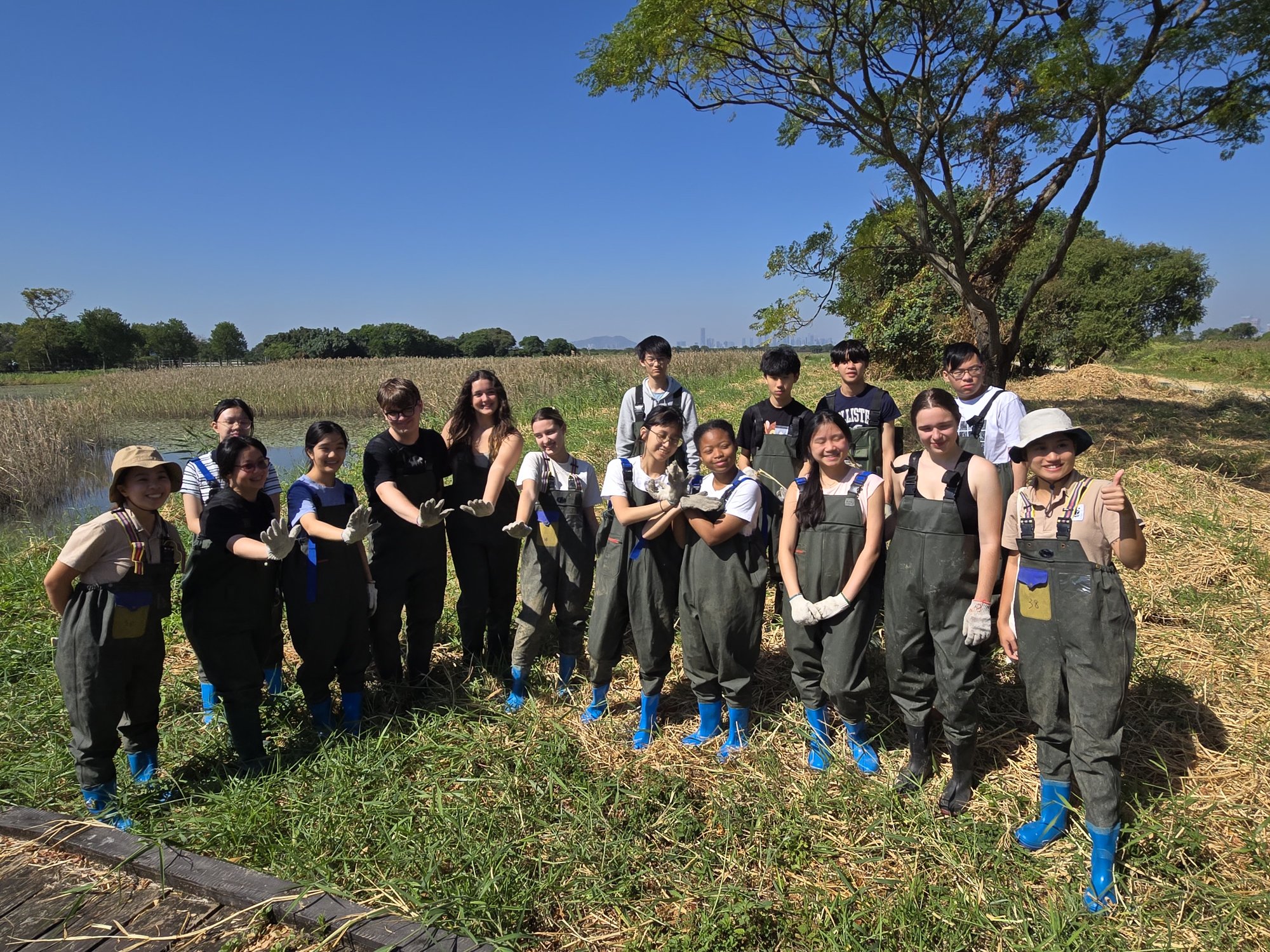
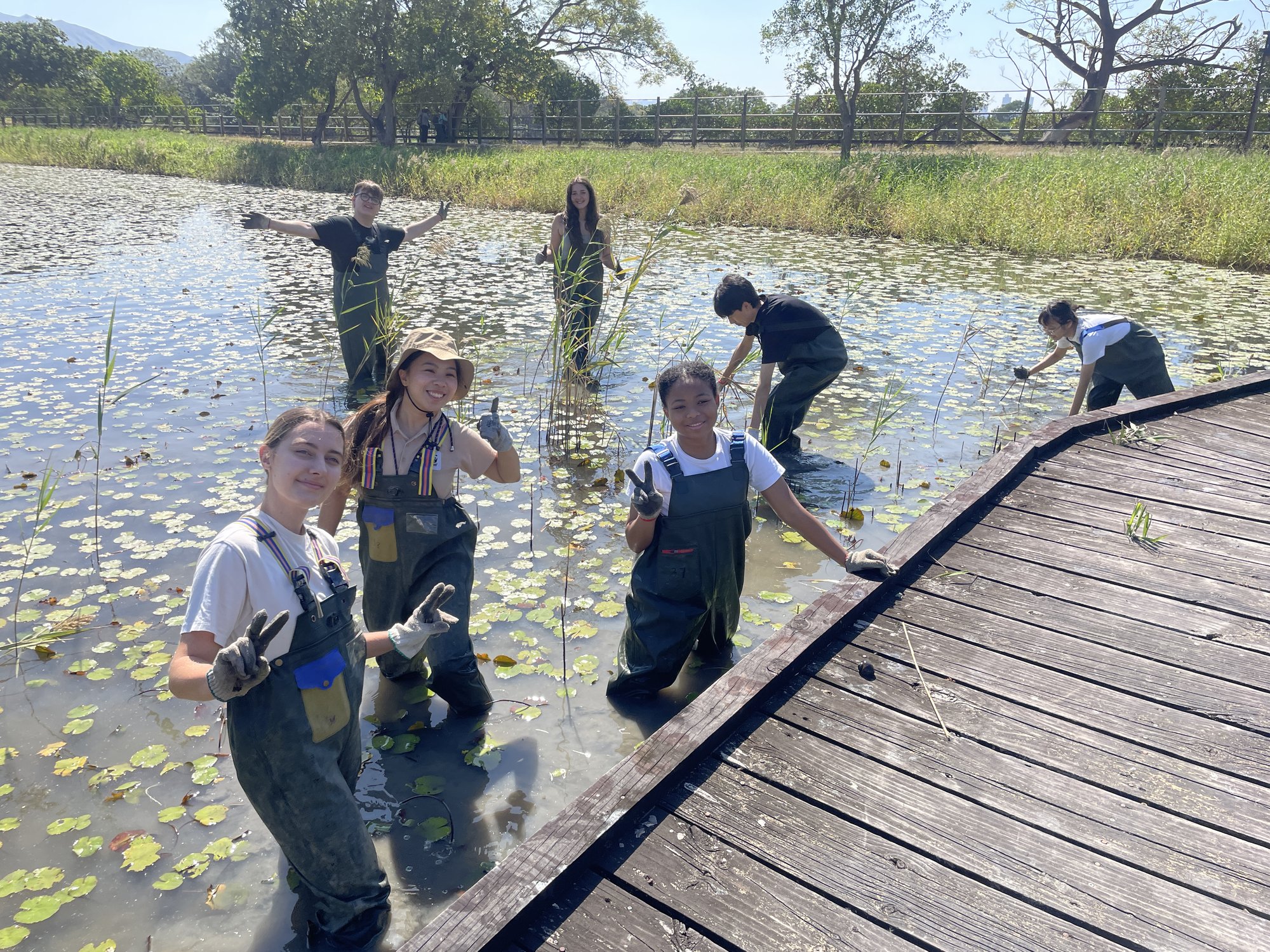
Future conservation stewards in action: UWC students gaining hands-on experience with conservation fieldwork as they remove apple snails in Mai Po Nature Reserve
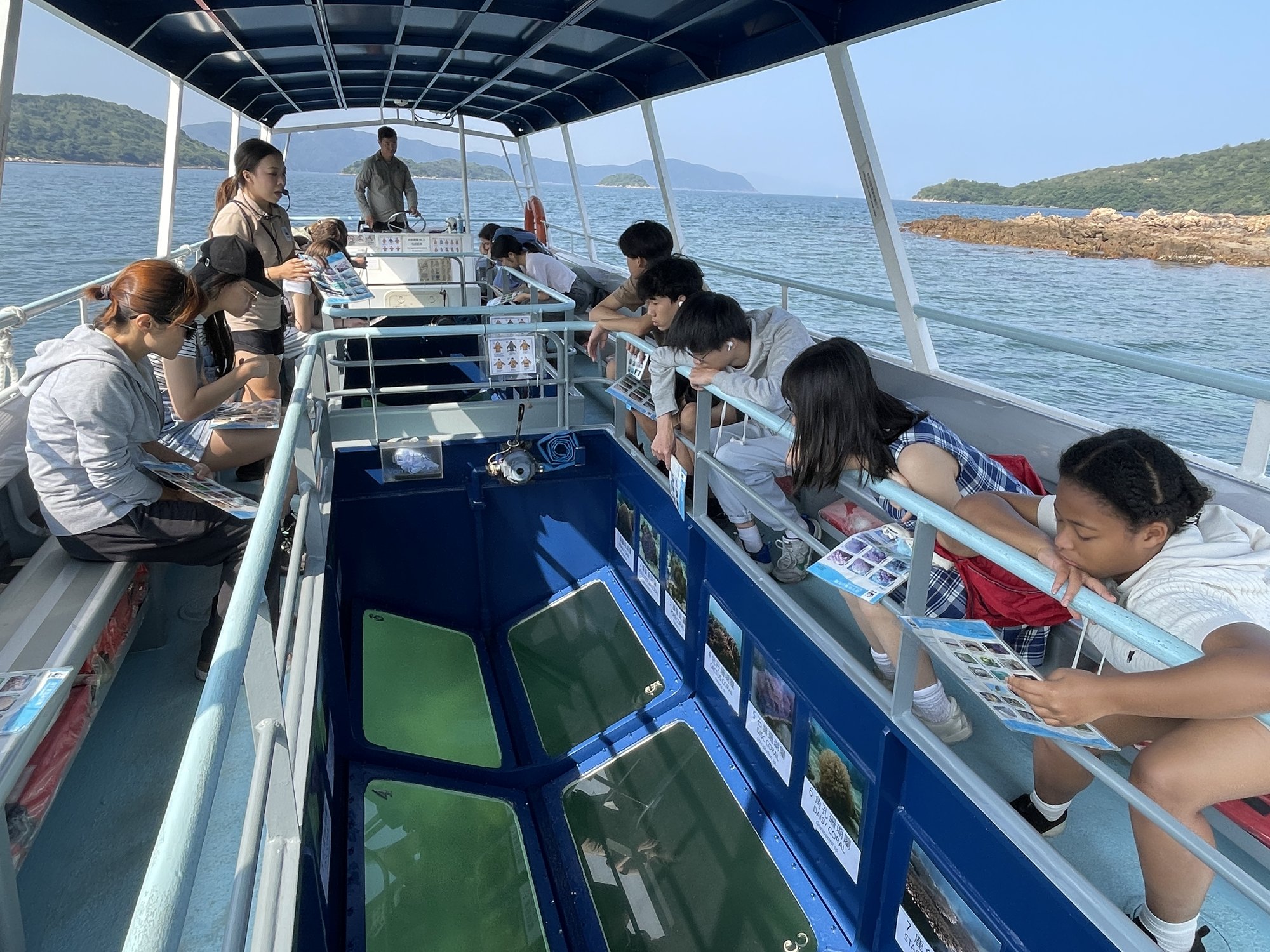
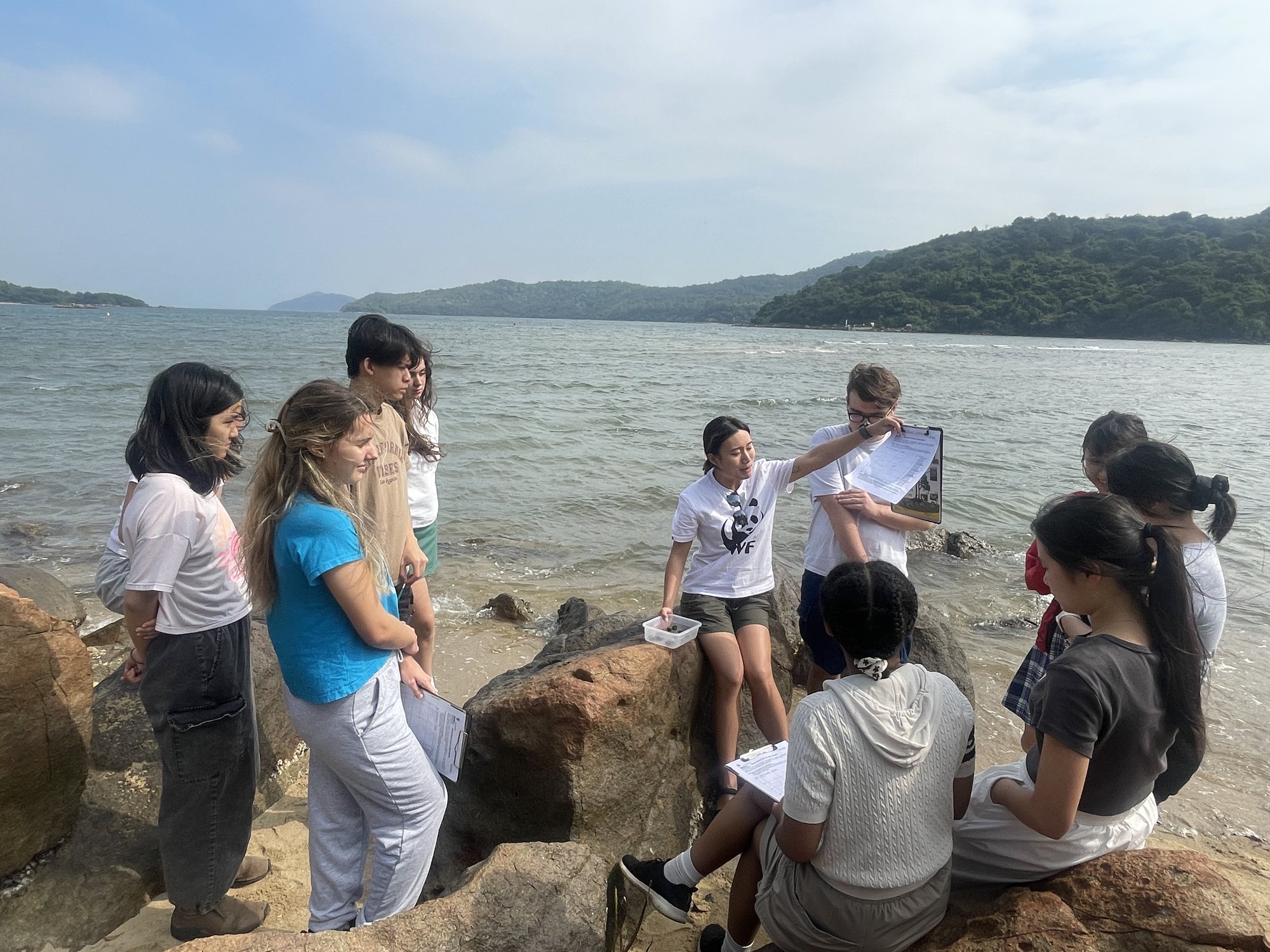
Students learning about Hoi Ha Wan’s wonderful marine biodiversity

The programme’s multi-pronged approach combines training workshops with on-site field work, equipping students with theoretical knowledge and practical conservation skills